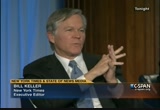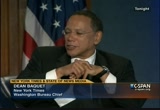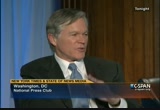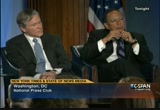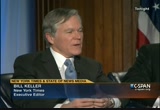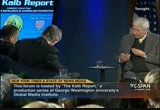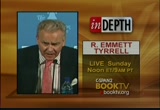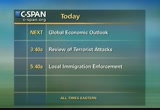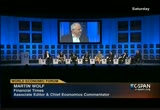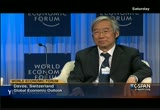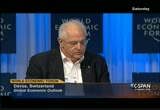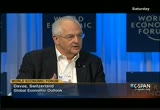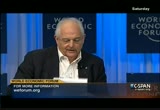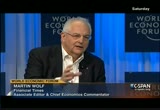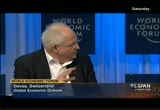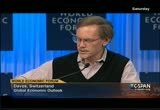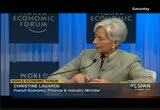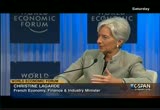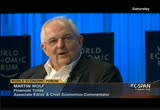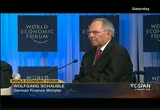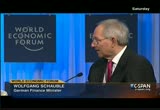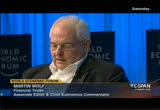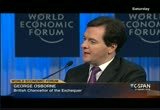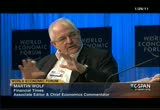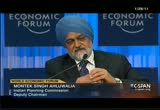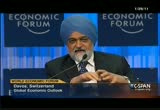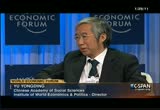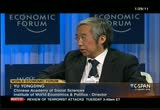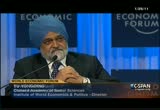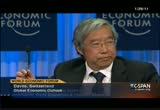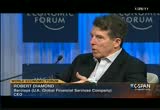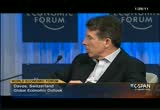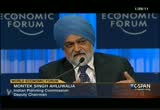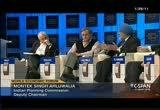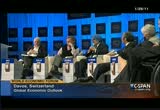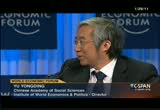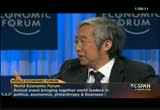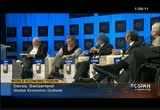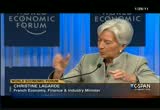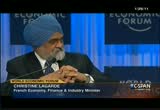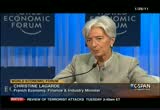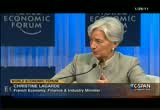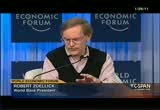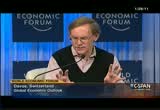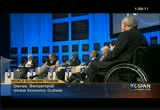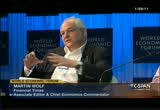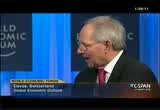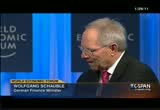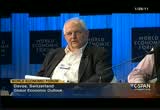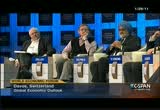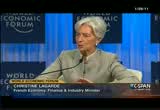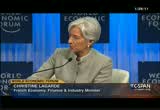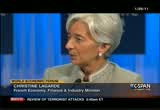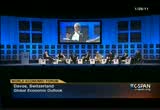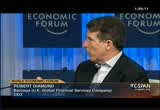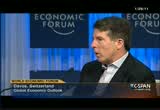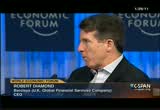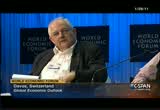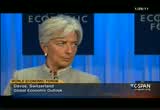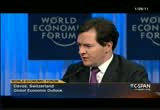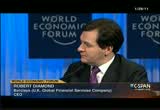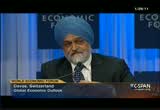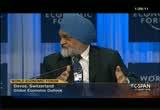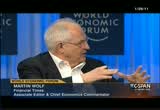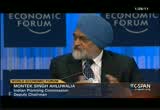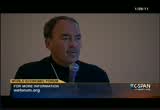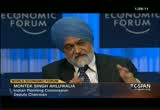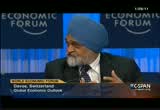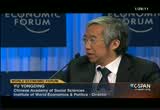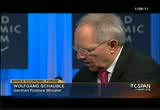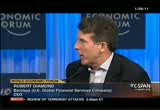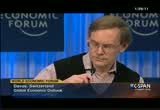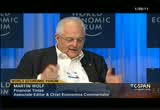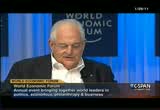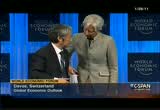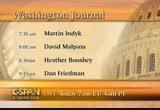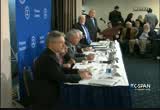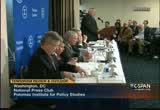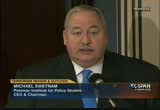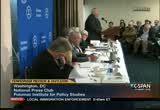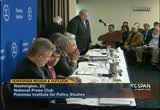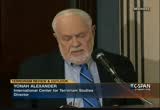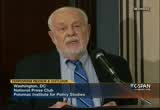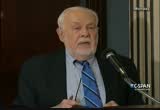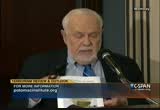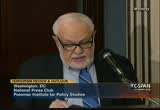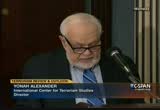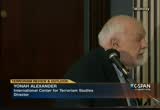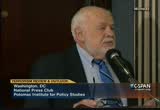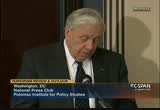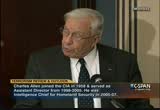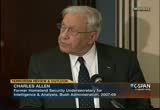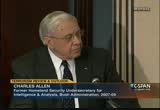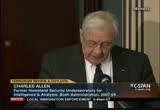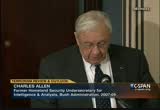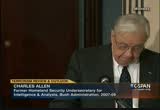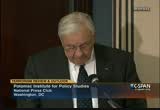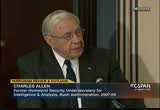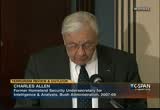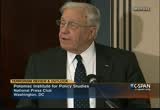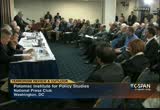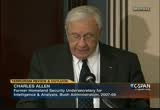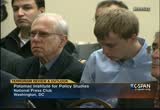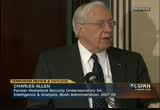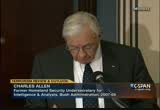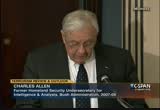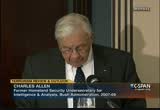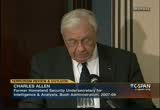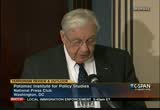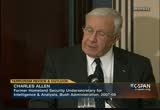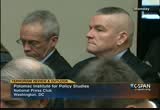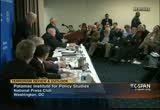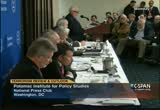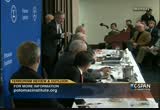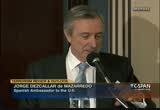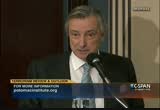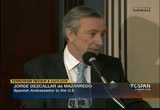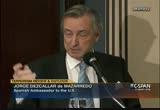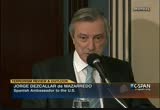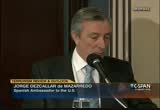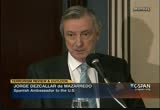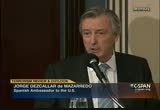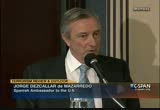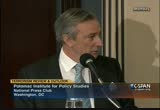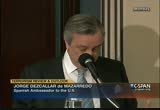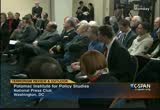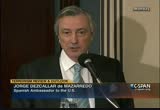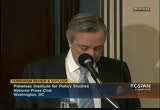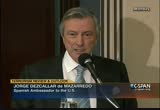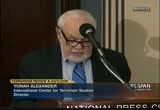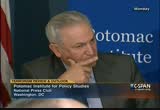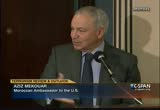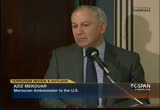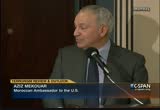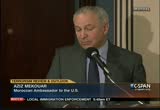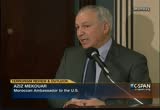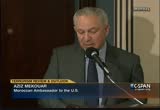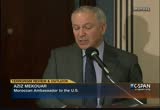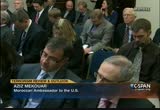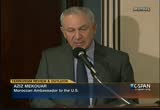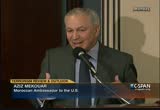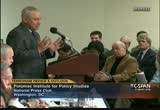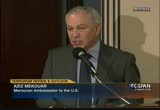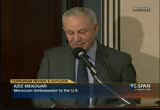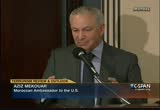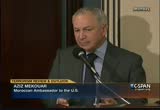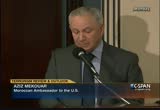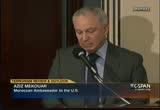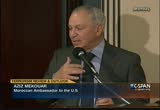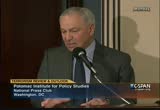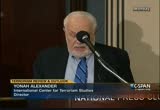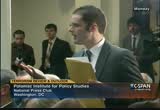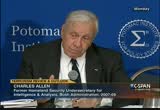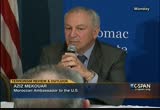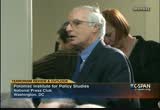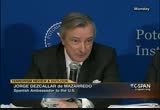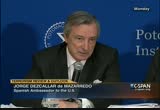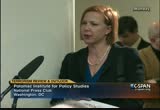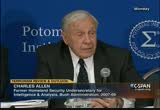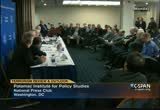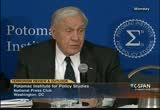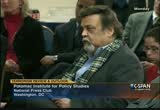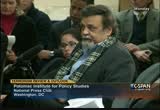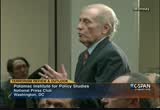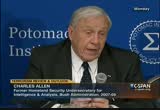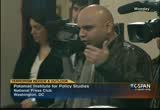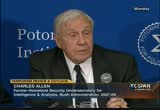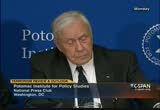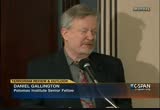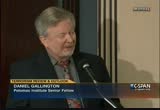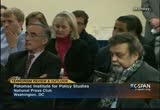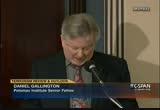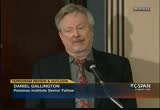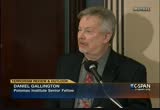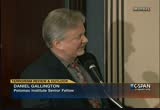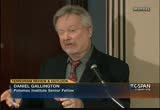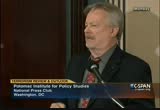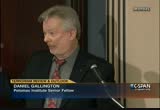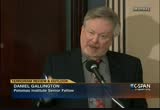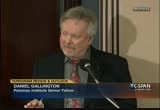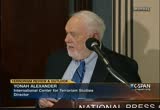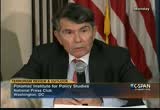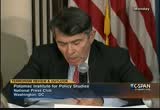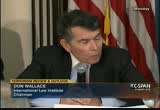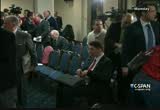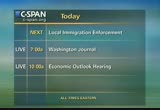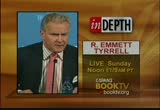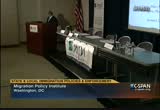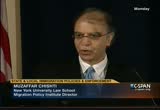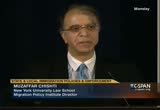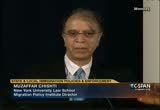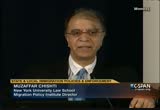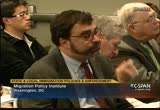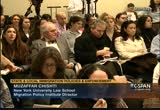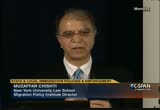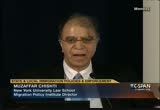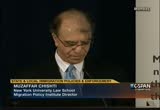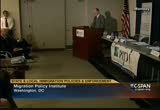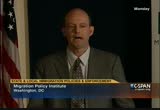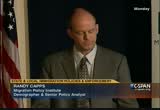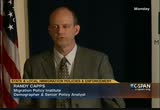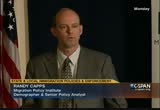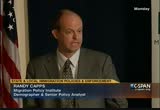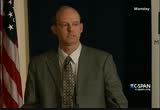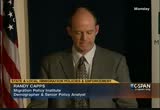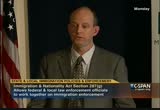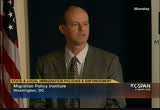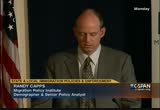tv Today in Washington CSPAN February 1, 2011 2:00am-5:59am EST
2:00 am
the printed paper to create a local edition a couple times a week. and those we think have been quite successful. that's the people who we don't hire them or run these organizations, but vet their work very carefully and read their stuff before we put it in our paper and subject it to editing rigors of the "new york times." i think these days, we are in an era of experimentation and as long as we are persuaded that we can undertake an experiment without putting the credibility of the paper at risk, we are game to try it. .
2:01 am
2:02 am
clarity. you have to be intensively curious about the world. the remains are less important than what your work shows about the skills. >> he spoke of one journalist that was a marine. one thing that we have found that we look for is diversity of experience. there are not enough people with military experience. there are not enough people who are evangelical christians in the newspaper business. we are not going out and recruiting evangelical churches or a marine recruiting center for journalists, but for somebody who comes in, their background gives them a different perspective on the world and that is a plus. >> he said that journalism is in an experimental phase.
2:03 am
believes that we might have held 15 or 20 years ago may not be applicable today. but how do we, at the end of the day, how can we be comfortable that the solid aspirations of journalism of years ago are going to continue today and the rush to get things on the air and on the web. the pressures on reporters, it would seem to me that you have a huge responsibility beyond anything that an editor of the -- "the new york times" would have had years ago. >> that is a depressing
2:04 am
description. i think that we have to constantly remind ourselves. the places that have high standards and high aspirations, we have to constantly remind ourselves to just print the fax. people have a lot of places that they can go to find out whether the stock market went up or down today. they come to us because they want something more than that. they would like to be some idea as to why it went up for why it
2:05 am
went down. what is working and what doesn't? that takes time and that takes reflection. we have to keep telling the world that this is what we are. we have to keep reminding ourselves of that. >> gentleman, you have been terrific. thank you all for being with us. [applause] >> in a few moments, a forum on the global economic outlook. in 1.5 hours, a review of terrorist attacks. after that, and the discussion with the executive eric at -- executive editor and your chief of "the new york times".
2:06 am
>> sunday, r emmet tyrell. his latest books. join our 3 our conversation with your e-mail, phone calls and tweets. that is on booktv on c-span2. >> the c-span networks covers politics and american history to it is all available to you on television, radio, online and on social media website spirit find our content any time on our video library. we take c-span on the road with our digital bus and local
2:07 am
content vehicle. the c-span networks, now available in with a 100 million homes. created by cable, provided as a public service. >> in a few moments, a world economic forum on the world economic outlook. in an hour and a half, a review of last year's terrorist attacks and what it may mean for this year. after that, a law that offers state and local law-enforcement officers to screen people for immigration status. >> on>> more now from the world washington journal economic forum with a discussion morrow morning, we will talk about egypt with martin on the global economy. executives from china, india and david several european countries are>> we are ready to go. your questions about proposals to reduce the deficit and then anotherwelcome to this year's global economic outlook. and privilege to moderate this
2:08 am
session for a little while. washington journal is live on c- span. here historic speeches by national leaders and events that shaped our nation. visit museums, historical sites and leading historians, dealt in two of america's past. all weekend, every weekend on c- spanit has been interesting over the >> more now from the world economic forum with a discussion on the outlook of the global economy. representatives from the world bank, china, india and several european countries. this is 1.5 hours.
2:09 am
this is going to present and exceptional problem for the moderator, but i will do my best. despite the fact that we have a little more time than usual, it will be incredibly and wonderfully disciplined. let me introduce the panel and very briefly. i think i probably know everybody. to my left is the president of the world bank group and a new member of the bank of gold. next to him is my first boss. he is also deputy of the
2:10 am
planning commission. next to him, another friend of mine. next to him, is christine lagarde. next to her is mr. george was born -- george osborne. next to him is bob diamond who has become chief executive of barclays. next to him is wolfgang schäuble. just to put very briefly the context, at the very recent imf update of the world economic outlook, last year was exceptionally good. it was much better than some
2:11 am
as the very recent imf a bit of the world economic outlook shows, last year was exceptionally good. it was much better than some people expected. a 5% growth in 2010. it is funny money. real money was at 3% growth. if you look at the 5% growth, it it was a very divergent picture. in the big developed countries, 2.8% in the u.s. and 1.8% in the euro zone. the imf suggests that next year
2:12 am
it will slow a bit to 4.4%. two 0.5% in the advanced countries with the u.s. at 3% in the euro zone at 1.5%. this suggests that the general mood is more optimistic than the imf. the second point i would make in the introduction is that this is a world economy and it has been a to speed world economy since the year 2000. i would put forward a number that been bernanke -- ben bernanke gave us.
2:13 am
he pointed out that if you look back at what has happened to the gdp of the emerging world and the developed world since the beginning of 2005, the former has grown by roughly 45% and the advanced countries have grown by 5%. the final points, there are some very big risks and challenges which everybody knows about. is inflation a big risk? it is clearly a problem in a number of emerging countries. second question, what is going to happen to oil prices and events in the political sphere raise that regard. >> currency wars, there has been
2:14 am
a lot of shift in global account balances, but there is a lot of concern that this will reverse and the conflict over exchange rates between the u.s. and china remains of -- remains very significant. how quick should it be? what are the risks of doing it too quickly or too slowly? unfortunately, we do not have a representative of the u.s. government here. still, it is a very big issue. the root zone, where is it going? -- the euro the zone, where is it going? how are we going to exit from this massive stimulus that we had. a quite extraordinary of monetary stimulus. many people expected to be an issue.
2:15 am
finally, there are geopolitical risks. whatever the general optimism, we have the capacity for plenty of things to go wrong. as an economist, it would be very depressing if that were not true. i will turn to bob for a brief view as to where we are going. >> what you said of the multi speed recovery, in germany, and we are coming back strongly and for many of them, the challenge is overheating. ultimately, there is a risk of a boom-bust.
2:16 am
the causes of inflation are different in each economy. some on the supply side and some on the demand side. those will be the issues that policy makers focus on. in the case of the u.s., as tim geithner said, there is a challenge in creating jobs and breaking the wave of the debt and deficit that overhangs the company -- the country. in europe, the focus is on issues related to sovereign debt and trying to navigate through that. for all, there is the concern of keeping one's eye on the fundamental growth and how this relates to what you have written a lot about. >> thank you. a powerful agenda for the world. may i turn to you, christine
2:17 am
lagarde for your perspective on what you see of the situation in france and the rose son -- bureau zone bureaueuro zone? -- euro zone? >> let me give you three numbers on the euro zone. let's not forget that the deficit numbers were the same between the imf and the commission. that is the deficit relative to gdp. concerning that, it was about 84%. the growth will be between 1.6%
2:18 am
and 1.7%. when you constantly bash this, the numbers are not relative to other numbers in other parts of the world. having said that, growth is picking up but it is not picking up at a fast speed. but not find that particularly stressing. when we look at gdp per capita, it shows us that there is still a long way to go for the adjustment to occur. it is picking up a little slowly for 2011.
2:19 am
but with the massive restructuring that is taking place car i think -- place, i think that we will see growth. >> may i turn to you mr. schäuble? germany's exports remain outstanding. are we seeing a strong pickup in domestic demand in germany and how to you see issues from the point of view of germany in relation to the euro zone? >> first of all, i would say we had growth last year. but you had to keep in mind that is compared to 2009. of course, [unintelligible] the forecast is about two 0.2% and two 0.3%. germany was destroying growth in europe and the global economy by reducing our deficit.
2:21 am
as you can see, last year, we were successful. i think the forecast for global economy [unintelligible] we hadn't to regulation and too much liquidity. we had to fight the main reason for 2008. we must not lose the momentum. >> one point that you're reminded me of is that if you look at -- if you take the six largest advanced countries, three of which are represented here, in the third quarter of
2:22 am
last year, gdp was still below where it had been in 2008. the latest u.s. numbers show that are above that. it gives you an indication of how deep the recession has been and how we are still below the preceding peak. let me turn to you, george osborne. you might want to comment on where you think the u.k. is going. >> the challenge is to move on from securing financial stability. i sit on this panel as the finance minister. i think sustainable growth and financial stability are possible. they were disappointing. it was a challenge for the
2:23 am
government over the next year or so. we need to remove the obstacles to stronger growth. that is what we will be focused on. there is a civil awning, -- a silver lining. exports are up fairly strongly and business confidence is improving. the government to plan is comprehensive and credible deficit reduction to put beyond a doubt the u.k.'s credit
2:24 am
rating and to keep market interest rates low. second, competitive tax reform. we are cutting our corporate tax rates and reforming control of companies. president obama is independently proposing quite similar things in the united states. third, structural reform to the welfare system, education, some of the regulation or around non-financial business. for me in the u.k., u.k. corporate is sitting with cash on its balance sheets. what i need to do is to start investing that money. >> thank you, very much. we will come back to these
2:25 am
issues and what is a strong european consensus. i would like to turn to you. this seems to be relevant to what i understand for india. when you hear this sort of discussion and you try to look in your own context at home, what do you think the likely outcome this, the rest to stability? >> i think that india's experience reflects what people say about emerging markets. we have a very smart recovery. our estimates this year, the year that ends in march is that growth would be about 8.5%. i think that the imf, which has been criticized for being too pessimistic is thinking that we might do even better. it is wonderful if we do. inflation really is a concern. the good news is that gdp growth is a 0.5% in the bad news is that in december, inflation was at 8.5%, well above what we
2:26 am
think it should be. we have taken steps on the monetary side. we have reversed the losing of monetary policy. there was some supply soared shocks -- supply-side shocks. i expect that on the fiscal side, we will grow fiscal stimulus. we will know the exact numbers of the end of february, but the finance minister plans to continue consolidation. we expect to see a reduction in the fiscal debt for the year 2011-2012. in his objective remains how to maintain a robust growth rate. there is not that much fun you last -- that much fun utilized
2:27 am
-- unutilized facilities. on the whole, things look quite good. there are uncertainties. that is pretty much what the global community is worried about. if you have an unexpected and large a spike, that would create problems. we are also concerned about financial stability, possibly because of the concern about sovereign debt in the euro zone. if the financial situation remains stable and the emerging markets are not disrupted by any event, then i think that we
2:28 am
would be in a position to achieve the objective of getting 9% growth. at this is not decoupling as is sometimes talked about. this is an increase in the growth rate of emerging market countries which is going through a process of catching up. the industrialized countries are moving slowly, but i do not believe that the emerging market countries will carry on with growth if you do not bring about stability. we are making sure that the global balance is somehow maintained. otherwise, on the supply side, things look good and on the price front cut it is manageable. >> thank you, very much. the same issues arise in china. there is discussion of inflation and managing extraordinary growth. how to you see the challenges
2:29 am
for china and then maybe you can come to the policy questions. >> compared with the other countries, china's situation is much better. mostly, these programs are created by channels that exist. now, we are facing challenges in areas of inflation. at the same time, we are also worried about the bubble. this has slowed down the growth of housing prices.
2:30 am
the potential demand for houses is still tremendous. there is a war [unintelligible] you have to loosen the policy. so far, so good. i am not worried about the short run prospects of the economy. just like in 2008, i have [unintelligible] this would grow public debt. if you are talking about public debt, it may be next year. so, the chinese economy is ok. for the longer run, if china fails to make a fundamental judgment, over the past 30 years, our growth has been tremendous. this is categorized by two things. these two policies, i think, have run out of steam. if we can really make
2:31 am
fundamental changes, then the growth will be sustainable. now, we are formulating -- you cannot plan for months. according to our intention, in the next five years, china's growth will be lower, may be lower than 8%. -- maybe lower than 8%. >> thank you, very much. that is an extraordinary success of these two jive countries. i think it is very helpful. i am happy to admit this. back in any year 2008, many people were skeptical. that is pretty important to remember.
2:32 am
according to our intention, the next five years the rate will be lower. this could be maintained for another decade or two. >> think you very much. that is an extraordinary success of these two giant countries. i think it is very helpful. i am happy to admit this. back in year 2008, many people were skeptical that is pretty important to remember. i will finally turn to you, bob diamond.
2:33 am
this is your opportunity to respond to the distinguished policy makers. how does it look in the financial sector? we are going to talk about whether the world economy and what you are going to do to make it better. >> we had a lot of time to discuss this over the past few days. what the chancellor said resonates with our feeling. it begins with jobs and economic growth. of jobs is really the single biggest key. i think it begins with the recognition that after a time of fiscal and monetary
2:34 am
stimulus, that the developed economies will be reducing spending in the public sector. the president talked about it in his state of the union address. the conclusion is that we are not going to see stimulus coming in terms of jobs from the public sector. it is time to move the mantle of growth from the public sector to the private sector. there is a eight trillion dollars -- $8 trillion in cash sitting on the balance sheets of the very healthy corporate sector. if we can get the confidence to get the banks and the company's working together to drive economic growth, we can be pretty optimistic. it is currently at 9.4%. as a dog-franc has been resolved, -- dodd-frank has been resolved, our feeling is that if we can keep up that
2:35 am
confidence and momentum in the u.s., the unemployment rate will be 8.5%, not 9.5%. >> i think it is clear that the general perspective of cautious optimism with large challenges is shared by everybody. before i move on to the g -- to the 20 agenda -- 20to the g20 agenda, what are the global, sequences -- global consequences. there has been a lot of concern in emerging countries about the difficulty of managing the global consequences of these super easy monetary policy is. if you focus on domestic
2:36 am
concerns in india, are the international factors of importance to you? what would you like to say to the developing countries about that? >> it is a good example of where the coupling is the wrong word to say -- decoupling is the wrong word to say. as far as excessive easing of monetary policy is concerned, one side of that reflects the policies emerging from [unintelligible]
2:37 am
we do not know if there is hope in achieving that monetary policy. given the fact that there is a huge amount of liquidity around, -- i cannot speak for other countries, but we are concerned that we do not want short-term flows. as it happens, we are currently running a deficit. we need to finance that deficit with long-term close -- flows. are quite happy if money comes into the stock market and we are not happy with money coming in in the form of short-term debt. we do have some capital controls.
2:38 am
i think that developing countries need to make sure they do not get swamped by flows beyond their ability to cope with them. different companies are doing a different ways. there is no global increase -- global agreement. to the extent to which the liquidity is the results of an unsatisfactory overrun, it is having some collateral damage of fact. i do not think it is affecting ndf at the moment. -- india at the moment. there is some weakening in the last few months of a direct investment flows. we think that is the time lag effect. a lot of foreign direct investment decisions had to be postponed. you're seeing that in the year 2010. otherwise, if it remains an
2:39 am
attractive destination for foreign investment, we expect that. >> can i just follow up and address this question to you? if i remember correctly, china's reserves have risen over $800 billion. it has been a slower appreciation. you were talking about inflation concerns. is one solution to accelerate the appreciation? what do you want the rest of the world's monetary policy to
2:40 am
be? how big of an issue is that? >> i should say that i am speaking on behalf of myself. there is a fundamental difference between china and india. in the it is a borrower and china is a creditor. one is an exporter and another is a creditor. [unintelligible] the trouble is, china is the creditor. if something is wrong in the united states, [unintelligible] this is a big worry. china should allow india to have more exports because if we continue to run to the suburbs, china [unintelligible]
2:42 am
[unintelligible] by doing so, i think that this argument, -- >> go ahead. >> this is not just in the united states, but also in china. this is more difficult. >> that leaves very properly to the g20 agenda. there are skeptics. journalists are always among the skeptics. some say that the g20 had its glory days during the crisis and now there is no real further progress to deal with the big issues. france clearly as the agenda, and quite an ambitious agenda. can you set out what you want to achieve this year and what you think the priorities are in
2:43 am
terms of animating forward movement in the g20? >> let's say that the g20 was only worth it in a time of crisis. hopefully, the agenda will resonate not just with the happy few, but with everyone. i would like to point out two chapters. one is the chapter we are curators of proposals that have been made in the last couple of days. that includes financial regulations where we need to be careful and not get diverted
2:44 am
with other agendas. the second is the framework for growth initiatives. where the actual decisions will be made in the g20 make sure that we coordinate our policies. i would call that the curators job that we have to make sure that it is done. it needs to continue. in the new chapter, the new initiatives, i think it really resonates with what he was saying. number one is the improvement and reform of the international monetary system. being very humble about it and understanding we are not going to change the articles overnight. all important players are at the table and we restore the level of confidence. this is the two key objectives we need to address. we can see about the issue of reserves, but i think this is important so that everybody is in the game. the second part of that big chapter of new initiatives
2:45 am
concerns the commodity prices. we do not want to be diverted to much. i think it is a key issue. it is a key issue because we need to feed the world and that is growing. we need to make sure that there is enough transparency. enough thinking put into the process. but just in speculation, but that is really a chapter that is important. the third section in my second chapter is the issue of development. we have been talking about
2:46 am
development. the world bank has been fantastic in conducting initiatives. we need to focus on the topic of infrastructure, to arrive at a list of the infrastructure where we have identified the infrastructure projects that are worth it and would be conducive to development and would-be finance will -- financeable. all players, particularly the emerging players, but all those are represented. >> i would like to turn to you bob zoellick. you wrote a book on the monetary system.
2:47 am
agricultural projects and the whole issue of commodity prices and agricultural prices. that is a very big global issue. we do not have this. what is your view of what is feasible for the g20 two to and how would you comment on the agenda that christine lagarde let out? >> there have been doing an excellent job of trying some ideas and out of reach. the reason why this is particularly important is there is sensitivity between countries that are not in the g20. we template part of the intermediate and roll, -- into mediate -- there are certain topics were you can nudge along, but there are some that are targeted for action. i think that the agriculture topic is one that is very important.
2:48 am
we have financial safety nets. everybody here recognizes that there may be some need for some food safety nets. we have suggested to put food first on the agenda. one is a topic that has been discussed. president obama took some leadership on this. there have been a number of private companies here. they take the advantage of the increase in demand. there is also the food price volatility. there are different approaches to this.
2:49 am
>> i think there is a good combination on agriculture. we were just discussing this morning the developing world. there has been a lesson coming out of the 90's where you can invest in infrastructure today but you are also creating future productivity and dealing with these bottlenecks. there is huge interest in public, private partnerships. this is one of the topics. there was a lot of important work going on in this area. i agree with the suggestion that
2:50 am
we focus on connecting this in africa. this could help break the barriers down in some of the small economist, working with the african union and others. on the monetary system, you have touched on the elements. we're in a state of evolution. i think this be useful. one key point the people should not leave -- lose sight of is having flexible exchange rates. i think that is a very important norm for the system.
2:51 am
i think that people can develop -- you have the issue of china. some people are talking about, can you use it as a new international currency but as a form for trying to encourage china to move more quickly. you have the imf as a referee. you have a provision in the wto that reflects the trade and exchange rates. these are the topics that you could move the process forward, it is an evolutionary force, but you could have productive results. the key thing where i see an added sensitivity from the developing countries is that the g-20 needs to proceed in a way that also recognizes attention for a non g-20 members. >> i would like to go on with this. we have a few other issues. we can always come back to this. there has been a significant
2:52 am
crisis in the last year. many people have felt that the euro zone was behind the curve. people are much more optimistic this week. a sense that very strong statements have been made. very clear commitment and that seems to the change the mood about this. whether you think we have got to managing the crisis and what happens next? we know that there are discussion about longer-term reforms of these surveillance system. there is a lot of discussion of
2:53 am
how the debt restructuring should occur. there is also discussion of more money. where do you see this euro zone going? there might be further big shocks here. >> i did not expect that there will be. the euro will be stable. i think that what president sarkozy has said in the world economic forum will be built up. the main problem is that outside the euro, people do not really understand a common
2:54 am
european currency with a monetary policy without a global economic policy. we had to learn that the systemic contagion problem we will deliver. you'll see. we are ready and we are able to defend the stability. of course, it is difficult. there is a lot of discussion. my fear is that we have too much discussion. it is one of the reasons why we suffered problems in europe. they're not as bad compared to other parts of the world.
2:55 am
of course, we will draw of the consequences in the euro zone. it is a common arrangement. it is already decided. we have a task force and we agreed on a lot of proposals. we will harmonize our current economic and global policy is to improve competitiveness and all memberships. to increase the competitiveness and member states of the world organization. to defend the euro as a whole if some memberships. it will take time.
2:56 am
but we are totally convinced that we will succeed. >> there has been a major financial sector shock concerning some countries in the euro zone. do you feel that confidence is returning? and there are still huge spreads on the debts of some countries. what would you like to see? >> the sense from the banking perspective is that we had a period that was acute and the crisis was truly acute. the worst case looking for work, because of the commitment
2:57 am
and the strength that the euro is going to hold together, is that we will have the ability, but it would be more a chronic as opposed to acute. i do not think that anyone is saying that the volatility in the markets is completely gone, given some of the fiscal issues that the different countries in europe are facing around spending and deficits. there is a chronic issue -- what was an acute issue a year ago is at worst a chronic issue today. >> do you want to add anything? one pretty big issue is clear that people expect restructuring of the debts of some member countries. we still do not know how that will happen. it is difficult to persuade people to lend large amounts of money to a government. that seems rather a contradiction. >> i would like to disagree with diamond.
2:58 am
when he says that it has gone from acute to chronic, i disagree with that. we went through a crisis in 2010. no doubt about it. we had to put in place a rescue package. in the process, we transgressed all of the rules, common principles that would prevail. we went through that, ttalking a lot. we put in place the european financial stability funds in a matter of a week. it went to market a couple of days ago. it is an indication that on the market of confidence, the euro zone has turned a corner. having said that, we are working hard.
2:59 am
i disagree with you, bob. in terms of fiscal consolidation, we are all heading in the same direction. we are consolidating. we are consolidating. some people say you were going to cut growth. it is outside the zone. they use strong consolidation measures and it is growing at 70%. let us not short the rose arm. we are headed in the same direction. we are producing significant reforms. take the job where it was left unfinished. we decided to have a single currency because that is what european unity belize in.
3:00 am
3:42 am
>> ladies and gentlemen, if i could have your attention please. i'm ceo and chairman of the potomac institute for policy studies, and it is my privilege to welcome you here today, which is unfortunately another gathering to talk about terrorism. for more than a decade, the potomac institute has been privileged to host these sessions, reviewing terrorist acts and the status of terrorism over the past year.
3:43 am
unfortunately, it appears that the skirts of terrorism continues to grow and spread around the world, and unfortunately, we will probably be having these meetings for many more years to come. it is, as i said, the privilege of the potomac institute to be one of the hosts for this session. at the potomac institute, we have the international center for terrorism studies, headed by professor alexander, who i'm sure most of you know has been responsible for studying and writing about terrorism academically for more than 40 years and is the author of more than 100 books on almost all subjects of terrorism. cosponsoring today's event is the into university center for terrorism studies, also directed by professor alexander. we are very privileged once again to have our partner, the into university center for legal studies at the international law institute as a cosponsor, and we will have closing remarks from
3:44 am
prof. richard professor wallace, chairman of the institute, told us join us here today. they've been a longtime partner and friend in the study of these very important issues. as i mentioned at the outset, unfortunately, terrorism as an act of as someone said political discourse, continues to grow. you will find in one of our more recent publications outlining the facts and consequences of terrorism through 2010 in northwestern and central africa, and i just this part of the world alone, the number of events that have occurred over the last year has continued to soar and the exact death and carnage in its wake. this is, as we witness on tv today, different forms of expressing political and social will of the people throughout the world. it is important to note the
3:45 am
differences between that and what some would claim is a legitimate way of expressing their political desires and most of us considered to be criminal, illegal acts of violence against humanity, but most of us would term as terrorism. we have today with us -- we are fortunate to have today with us some of the world's experts on these issues, and they will -- starting from charlie allen, who has had many decades, as you know, looking at these issues from the intelligence community, ambassadors from two of the countries who have dealt with these issues for many lifetimes and many decades, and their experience will be of great value to us today. all of this, all the way through to our legal representatives at the end of the table from the international law institute and banned from the potomac institute of policy studies to talk about the illegality or legality of these types of acts.
3:46 am
with that, i would like to turn the program over to professor alexander, who, as most people will recognize, is a man who does not need much introduction. he quite literally has studied almost every aspect of terrorism for more than 40 years and is a world authority on the topic. we are privileged to have him at the potomac institute. we're privileged to have him heading up the sessions every year. professor. >> thank you, very much, mike, for your generous introduction. clearly, we are grateful to you and to the potomac institute for hosting this particular event to review the terrorist acts the year before and the outlook for the next year, and mike is very modest.
3:47 am
we worked together on a number of studies, al qaeda before 9/11, and also other terrorist groups, and fortunately, we do have the ambassador to spain, who will discuss also the issue, and we are dealing also with the issue of cyber terrorism as well and strategic communications. first of all, let me welcome again the panel, and we are going to introduce you in a few minutes. i would like to welcome the audience. if i may, i would like to introduce two people from the potomac -- vice president clifford, would you stand up? in the general right here, was working the cyber issues. i would like to also introduce
3:48 am
,ur young people, the intern's the next generation of scholars and experts in the field. where are you? we have three in the back. there are some more in the back. in general, we would like to welcome all of you. just one technical word -- please turn off your cell phones because this session is being broadcast by c-span. we want to thank c-span and also the voices of america and others for covering this event. now, i would like to say that in particular, this stage of strategic development -- of course, we see the reason the effects of, for example, in moscow and afghanistan and so
3:49 am
forth. what has emerged as the so- called new middle east. some people call it the 9/11 of the middle east. clearly, all these events are interconnected with the problem of terrorism because it might trigger some terrorist attacks worldwide. again, we have to watch the situation very carefully in the coming months and years, and the panel is going to deal with some of these issues. now, as far as the presenters, each will have about 15 minutes to make their remarks, and then, we will have q&a discussion. before we introduce our panel, i would like to make two remarks. one, on a personal level, i would like to report to you that
3:50 am
a colleague of ours just died, prof. edgar brenner, who cooperated with us for the first 30 years of the potomac, and i had the privilege of working with him for the past 35 years. we are going to have a special memorial service to celebrate his many contributions next month, and we will keep you posted. if i may, i would like to mention three publications that we worked on the past year. one has to do with for an affinity to terrorists in our midst, basically focusing on the crisis of identifying the question of loyalty to home american citizens and others will somehow become members of the terrorist groups, and i'm sure we are going to deal with that. this was one publication we had
3:51 am
last year. the other publication is a new nato interdisciplinary journal that we are publishing in cooperation with nato, and a particularly, with the nato center of excellence and the partnership for peace. this publication will be available to you. third, the publication that might just mentioned -- that might -- that mike just mentioned. i was able to look at the situation earlier this month in the region. just a few words about some of the findings. it seems to me that unless we see this strategic map in a way
3:52 am
that we do not miss the quarters, then i think we are going to be in a good situation to realistically assess the nature of the threat and what can be done to deal with the problem. if you take, for example, this issue of north africa, and we can see the developments in the past month -- for example, in geneva. we have to look at the situation in algeria and libya, mauritania, morocco, tunisia, chad, mali, and niger. on the basis of our studies since 9/11, we recorded an increase of some 558% of the number of terrorist attacks in the region. but my friends, it is not just the number of bad tax.
3:53 am
it is the impact, and i'm afraid that with the new developments, we are going to have an increase. clearly, it will look at the various open sources, there is no question that al qaeda and the moderate, together, jointly, with various al qaeda affiliate's, for example, the arabian peninsula -- they represent the most dangerous threat, both regionally and globally. the problem of fail-safe -- the terrorists are exploiting the open spaces in order to recruit, in order to be involved in narcotics trafficking, in human trafficking. it is unbelievable. if you go to the region and see
3:54 am
what is going on, the links. now, what can be done? we now have quite a number of recommendations. i would like to mention at least two. one of them is on the intelligence level, and we do have experts on intelligence who can discuss it today. intelligence, intelligence, intelligence. and sharing of intelligence is really the key. number two, a political solution to some of the problems in the region and beyond. in the region, particularly, the conflict between algeria and morocco. it does require a solution. if we are not going to have it, we are not going to have stability in europe and elsewhere.
3:55 am
i would suggest that all of us, meaning governments, the civil society has to participate in this effort. in the interest of time, i would like to just mention that these people who need no introduction have contributed to the national security concerns of the united states and the international community for many years, and, fortunately, they supported the academic work of the potomac and other institutions in the past 30 years as well as before that, so i'm delighted to participate in this panel, again, with our friends and colleagues.
3:56 am
>> thank you, very much, professor. it is great to be here with you once again and with this distinguished company we have. i'm going to speak primarily about al qaeda, not talking about other terrorist groups like hamas or hezbollah. my focus will be almost entirely al qaeda and where we stand. professor alexander just talked about the events on the 24th of january at moscow's busiest airports. demonstrates how certainly these events can occur and the damage that can be done to the entire psyche of a nation, as what happened to the united states, as you know, on september 11. this fall, on 11 september, if
3:57 am
the current situation prevails, will be 10 years since we had a successful al qaeda attack directly against the united states, inbound. i think this is pretty remarkable. given the fact that we have engaged in two multi-year wars in afghanistan and iraq. we have had a global intelligence-led offensive against al qaeda in all dark corners of the world, not just iraq and afghanistan. and given the complexity of the attacks that occurred back on september 11, the intelligence community forecasts there will likely be future attacks of equal if not greater intensity than what occurred on september 11. part of the reason for this pessimistic forecast was that the intelligence community's lack of understanding of the full capacities of al qaeda and
3:58 am
its ability to conduct intercontinental attacks against the united states. while i was never quite that pessimistic and never quite believed that, i did believe there would be additional attacks, small, violent attacks in this country, and we now know there would have been successful attacks, repeatedly, had not united states gone on the offensive to disrupt a whole series of plots that would have resulted in serious loss of american life, damage to her critical structure, and also to our national psyche. i only have to cite the aviation plot of august 2006, just to illustrate that. that was disrupted because of exquisite british intelligence. intelligence, intelligence, intelligence, as the professor said. the same can be said of the events that occurred back on the
3:59 am
26 and 30 of october last year where we had al qaeda in the arabian peninsula attempt to bring down airliners using a low pressure vapor explosive disguised in hewlett-packard laser desktop printers. again, this was it intelligence, this time, from the saudis, prevented that from occurring. i've learned through my long career in intelligence, that there will be abrupt discontinuities. today, they are sort of called black swans, where there will be profound events that will change history, and we may be seeing that today in tunisia and egypt. we have all been aware of the political, economic, ethnic, religious, and geographical lines, and some of these are certain to cause conflict. it just will not be avoided.
4:00 am
camilla events are occurring in lebanon that i think illustrates that very much. we will be fortunate to come out of that without real conflict. we also have a great youth balch around the world. part of that is reflective of what has occurred in indonesia, where we have the enormous percentages of the national population under 25 who are unemployed or underemployed. combined with the fault lines in the middle east center of the arab/israeli dispute, i think we can see a witch's brew developing over the next decade, which will test this country in particular. for this reason, i think we have a look at terrorism in a much broader context, and i think we also have to look at the global threat from al qaeda, which stands apart from its predecessor organizations.
4:01 am
develop a technology means some of the world's most dangerous capabilities can be placed in the hands of a few. the recipes on the internet that anyone can study appeared al qaeda in the arabian peninsula just issued in english the new explosive manual that contains some highly accurate information on how to make explosives. it is out there for all of you to see. global communications and mass media provide a mechanism that can be used to fuel terrorism internationally. communications today provide terrorists and terrorist groups with the ability to cross national boundaries and sustain a, ideology and narrative. they permit groups to recruit new members, train them, and coordinate attacks virtually. let's look back at what happened in 2010. little has changed when it comes to the objectives of al qaeda.
4:02 am
their goal is to attack the united states, in flint massive casualties, damage critical u.s. infrastructure, and cause permanent psychological damage to the u.s. psyche. al qaeda takes the long view. osama bin laden has written about this. does not believe that the united states has the resiliency to remain steadfast, to take heavy losses and resist over the long term. al qaeda leaders have taken pleasure in viewing the united states as a society that recoils when there is a threat or even when there is a blame game that occurs when there is unsuccessful attempts to attack this country. i have read some interesting material over time. the united states and global alice in 2010 continued its relentless attack to disrupt, dismantle, defeat, and destroy al qaeda leadership in the federally administered tribal
4:03 am
area. that is john brennan's phrases, special assistant to the president. according to the press, we launched 115 so-called drone strikes in 2010 against al qaeda leaders, offered its, propagandists, and trainers. the strike still reportedly a number of al qaeda leaders. al qaeda acknowledges that the number 3 man with an al qaeda and general manager died may 2010. al qaeda central is not entirely cohesive. the nctc says there are perhaps 300 al qaeda members active, and it estimates that may be less than 100 are active inside afghanistan. contrary to popular thought, and i read this in the press and do not believe it, al qaeda leaders are not easily replaced. it takes a long time to replace
4:04 am
good leaders. al qaeda's diminished strength in the fattah however offset, as it tribally based pakistani group, has deep links into al qaeda central and is involved in supporting cross-border operations into afghanistan. and it has vowed to take vengeance on the united states, which it blames for the death of mature love sued back in 2009. august. you will recall that faisal sha hzad, the times square bomber, allegedly was trained by the ttp before he made his own attempt last may. it is challenged, however, i
4:05 am
believe, extending its threat transcontinental lead to the united states. it is a tribally based hushed tone movement, primarily. the other regional supporter is the harkani network. he was minister of trouble affairs in the taliban government. the networks provide the manpower to al qaeda for cross border operations into afghanistan, and the al qaeda network allegedly, according to the press, made room extremists for suicide operations. we could always spend time talking about the kashmiri-based group focus primarily on conducting attacks in india, but none of these affiliated groups really are the type that have the intent and objective of really attacking here in this
4:06 am
country. al qaeda affiliate's, affiliated networks continued to decline in 2010. the one decimated back in 2007, 2008, 2009 remains dormant. in the philippines, the leaders are killed or captured. as you recall, this was more of a thuggish group than a purveyor of islamic extremism, but i do have, as professor alexander manchin, concerns about north africa and east africa. let's look at al qaeda and the islamic mahgreb. it functions as a umbrella organization for a collection of organizations determined to attack what they see as apostate regimes. the bulk of the forces are located in southern algeria, no.
4:07 am
bali, and mauritania. they have rated archaeological sites and tourist areas. they specialize in kidnapping. and extracting significant ransom in order to fuel their operations. as you know, they have kidnapped a significant number of westerners, including a number of frenchmen, which they still hold. i think we have not seen them attack into western europe, but i think they may become more emboldened as the kind of disturbances occur as occurred in geneva. i think we have to watch aqim closely, and i'm thankful to professor alexander for studying this initiative. we know that al qaeda and tunisian merge with al qaeda in saudi arabia in 2009. it is very much an insurgent group, resurgent in its effort
4:08 am
to attack the united states in the west. it thrives in the in government areas of yemen. it conducted numerous attacks in 2010 in south yemen, particularly in the government's. most prominence extremists we know well. a u.s. citizen who provide spiritual sanction for those who may wish to commit suicide in the name of al qaeda. it also -- it also continues to provide propaganda efforts against the west. although didn't and under pressure, the voice is still heard. on the ninth of november 2010, he issued a of a new video. if you read it, which i did, it could be summed in two words -- kill americans.
4:09 am
we have already addressed the hewlett-packard laserjet cartridges, but it has done something else. a published last year its first edition of a web-based journal of propaganda directed at inciting violence acts, especially young muslims, living in the united states, the united kingdom, and other western states. this is an electronic magazine, potential to trigger young and alienated muslims to commit acts of violence in the united states and canada in particular because there are many canadians that really follow al aki. there is no question about that. it is directly linked to al qaeda central, operating in somalia, and it continues to
4:10 am
wage a fairly successful insurgency against the transition of national government, backed by the united nations, certainly backed by united states. several thousand young americans of somali descent have travel to somalia to fight for them. at least a couple have murdered themselves, committed suicide operations in that fight. our concern is not about an inbound threat directly from central, but from those who have gone to somalia, train, by in military operations, and return. many still radicalized and capable of committing terrorist acts. al shabab remains a fertile ground for recruiting extremists not only in united states but also in western europe. one of the things that has occurred in the last year, i
4:11 am
believe, is a greater prominence of radicalization, especially among young, muslim youth in the west. in europe as well as in north america. according to a study that was published in 2010, there were only 46 publicly reported cases of radicalization and recruitment to g hottest terrorism in the united states between september 11, 2001 and the end of 2009. only 125 people were identified as part of these 46 cases. 13 of those cases, however, occurred in 2009, which is a very sharp uptick. as you know, in 2010, the number of cases has increased. we had the case back on november 26 where we had someone in portland oregon trying to
4:12 am
detonate a car bomb at a christmas tree lighting. we also had an arrest of antonio martinez in baltimore, who was going to attack with a bomb at an armed forces recruiting center. the individuals involved were self-inspired and self- motivated. they were not directed from al qaeda central or from aqap over in yemen. they were u.s. citizens or held legal immigration status. the central theme of each plot involves placing explosives in areas that were murdered innocent americans who were attending very benign evens. western europe, and i know perhaps we will hear more from our ambassador from spain, is also a focus of al qaeda plotting, and there have been a number of arrests across a number of countries in europe, including spain. there are reports involving
4:13 am
radicalized individuals, some of whom were allegedly preparing to stage a mom by -- a mumbai-type attack. the threat was so severe that the department of state issued an intelligence advisory warning americans going to europe of possible attacks on europe's public transport system or tourist attractions. british authorities recently arrested in december 9 men on terrorism charges. the state of the individuals found -- they stated individuals found bomb making instructions on the internet journal. if you have not read it, i recommend all of you do. the electronic journal is in an easy to understand english. it is not heavy on ideology like a lot of the old homes --
4:14 am
teh old -- the old tomes that used to come out of the propaganda arm. it is a lot more clever, a lot more persuasive but there is something there. we must keep our perspective on radicalization here in this country. the pier research study of may 2007 still stands, i think, alone, i am pointing out that american muslims are overwhelmingly, decidedly american in outlook, values, and attitudes. hard work pays off in society. they have high income levels, a good education. most american muslims, by a two to one margin do not see a conflict between being a devout muslim and living in a modern society. my concerns were only over a tiny minority of muslims, a number of whom are converts, and
4:15 am
some who remain strongly linked with islamic countries overseas where extremist groups are flourishing. many of these new immigrants have arrived in the united states in the last 15 to 20 years as refugees and asylum seekers. some have become strongly attracted to the anti-western, especially anti-u.s. forces in their countries of origin. political, religious, and social tensions that exist in a particular community in the united states may mirror tensions in these other countries. these tensions may be reflected in the belief held by many muslim countries that the united states is at war with islam. this affinity with violent groups abroad is reflected again in the somalia case. somali immigrants coming to this country -- and i spent a lot of
4:16 am
time working this when i was the undersecretary at homeland security. they found assimilation difficult. they felt alienated. many retain this clan affinity back to somalia with the civil war. and they felt attracted to the radical imams in this country. as i said, the first generation of those fighters, some of them have returned, and others will. i think we have just as much concern about the second generation. these are not naturalize like the first generation, but they are naturalized americans, young men in their teens who are still influence. to date, the self-radicalized sells detected in the united states and canada have lacked a level of sophistication, experience, and access to resources of terrorist cells overseas. their efforts have been in the
4:17 am
nascent stages, and many of their efforts have been amateurish, but it is not the success. it is the intent, and eventually, they will get it right. given what i have outlined, i believe we have every reason to be concerned about terrorism in 2011 and beyond. as we know how quickly al qaeda metastasized after 911. al qaeda central may be slowly dying, but its tentacles around the world live on in very remote areas, and those tentacles will remain alive for years to come, and i cannot overstate the power of the internet, for fueling the growth of radicalization in this country and obviously in western europe as well. many of the extremists recruited in the united states began their journey on the internet where they readily found resonance and reinforcement of their own this committed use and people who
4:18 am
with legitimate and direct their answer. so the outlook for al qaeda and its objective in inflicting major damage to the united states and western countries has not changed, and the threat is very much with us and will remain so in 2011 and beyond. i look forward to your questions. thank you. >> thank you very much, charlie, for this overview of the past year and outlook for next year. no wonder that you are considered a legend and extraordinary senior official working in the field for over 40 years. our next speaker is also a official who had an opportunity
4:19 am
to work in this area for the past four decades as a senior diplomat, ambassador in a number of countries -- for example, more of go he served, also, and malta, montevideo, more recently in new york, but in addition to his diplomatic background, he was also the director of spain's national center of intelligence, and we appreciate very much, mr. ambassador, for participating in this event. we have the honor to hosting you as well as your colleagues. i recall the prime minister spoke at one of our seminars, and i found one of the interesting quotations i think the best describes what is the nature of the terrorist, and he
4:20 am
said, "whoever murders in the name of a country, a guide, for a social and economic system is neither a patriot, a believer, or an idealist, just a murderer ." mr. ambassador. >> thank you very much indeed. thank you very much. i would like to thank michael, the potomac institute, and my friend who was instrumental in bringing me here today, and for thinking that my remarks might be of interest to you.
4:21 am
i will do my best. i will try to say something practical and direct. i remember a long time ago, i was traveling with by foreign minister at the time. traveling with the irish minister at the time. we were waiting one morning in madrid airport for a plane to come down from paris to pick us up and go to tunis. i remember the prime minister called that morning to the foreign minister and ask where we were. i said i was at the airport, saying that we were going to to the ship, and he asked if we're going the wrong direction, because that same night, the regime had fallen. today, we talk about terrorism, which is important, but the center of attention is in the arab world, happening in those
4:22 am
countries, so close to spain, too. but charles bowen is giving us, i think, an excellent overview of the current situation, the current threats that we face, the situation of terrorism in the world, the different factions, what they are trying to do, and my conclusion would be the we had better be worried. do not be at ease because a terrorist attack is possible. they keep on trying all the time. sometimes, we have been able to prevent them from carrying out their purposes. i can tell you that during my experience heading of the intelligence service in spain, we boarded some terrorist attempts in my country. i know because president obama has said in a public the you
4:23 am
have done the same here in the united states, all the security forces keep on working day and night, as you say here, 24/7, working on that. but at the same time, as i say, they keep on trying, and they have all the advantages in their favor because they can choose the wind, the house, the moment. bake at -- they learn all the time. -- they can choose the when, the moment.e we learn from each other all the time, and the more we cottbus make our tactics better to combat them, the better prepared they are. sometimes, we are just lucky, as happened with the terrorist that tried to blow up a plane one year ago and ended up burning himself.
4:24 am
or in the case of times square more recently. so they keep on trying. i can see different types of terrorist. on one hand, you have the ethnic national terrorist. then, you have those who try to use religion as an excuse, a preferred form of religion, to suit their interests and to use in their benefit. then, we have some sort of anarchists or -- i think anarchism belongs more to the past, if you wish, but badly
4:25 am
adapted people carrying out their frustrations. then, we have a more organized sort of terrorism in the case of narco-terrorism. we are having it in mexico nowadays. it is very sad, but we have terrorism of the service of the state, states using terrorism to foster their objectives. let me say a few words because i was not going to talk about that because i do not think it is clearly looking for oxygen, you know. it is my belief that they are reliving their last moments, and i'm very happy to say so. it is very easy to kill one
4:26 am
person, and they might do it again, but it is becoming expensive to kill. people do not condone that any longer. eta has killed over 900 people -- members of the military, members of the police force, judges, journalists, politicians. i'm on their list, but it is not an honor, which i can tell you. i do not know how many truces they have declared. and all of them have ended when one has been coming for them. it is my sincere belief they are looking for oxygen and trying to internationalize their cause because they know it is the last possibility they really have. i do not think that the policy followed by the prime minister was very effective. what he tried to do was isolate
4:27 am
eta from its social base and declared the new political party. that decision was declared just unfair by the european court of justice. so there are ways -- they are cutting their ways of obtaining money, cutting their ways of obtaining weapons, and isolating them, and i think it has been pretty successful. we do think that is the last attempt to get some oxygen in order to reorganize themselves. we are not going to give them oxygen. we are going to keep combating them and trying to take advantage of these moments of weakness. the best country has its government, its parliament, its police force, its television in the local language, including
4:28 am
those who are -- want independence from spain. there is a very small group that are illegal because they are pushing that objective through peaceful means. the only thing we ask is to lead the weapons inside and, and they will not explain because we will not give them any possibility to take political advantages of killing political components. that is a line we will not cross. i think finally, we will realize that it is better to push whatever political objectives they understand through peaceful, political means. i would say that intelligence services on police forces nowadays have a lot of information, and are drawn on
4:29 am
information, be it through intelligence -- how do you call it? intelligence of signals, being human intelligence, open sources. there is a lot of information. the problem is connecting the dots. that is the main problem, and the most -- connecting the dots in different ways. on the one hand, among agencies. what happened here september 11 -- that is what happened in spain march 11. different services in charge of the police and intelligence services. had we put all the information on the table that we had at the time, probably, something would have come out. and i think the same happened here. it is also important to be able to connect the dots.
4:30 am
sometimes it does not happen. it is important to connect the dots with all the services because sometimes, there's almost nothing you can do. if you steal a credit card, or you rent a car with false documents, or you take a bus from one place to the other, you put all of those things together, you have a terrorist plot, but if you consider them in an isolated way, if you only have minor crimes, very difficult, and we were experiencing that in europe. i do not think that great progress has been made in this field over the last year's because it was very frustrating.
4:31 am
we've got everything together. it was impossible to hide that. so, connect the dots, i think, is the main objective. and i think we have to have our priorities clear. i mean to combat terrorism and reduce our vulnerabilities. we have to protect our critical network. we have to protect our border. we have to be clear on immigration. we have to be able to change data and to incorporate it into passports from documents or id's period change information on banking. the european parliament has approved the agreement, and now, we have a passenger name record.
4:32 am
we expect that that will be solved in the near future. but because of the limits and protection of personal data, but at the same time, we not only have to combat terrorism immediately, but we have to have a longer term vision, and we have to fight against the reasons, the causes, which are sometimes the frustration in the lack of political channels, participation, or the inequality, poverty, failure, in the process of modernization of certain societies. for example, they have copied the models imported from the west and have produced political
4:33 am
corruption and economic inefficiency sometimes. we have to fight against double standards, and we have to look at ourselves. we bridge one thing, and sometimes, the other. we are bridging democracy, but when it comes out that hamas is the outcome of that democracy, we take a step backwards for -- i mean, you know what i'm talking about. at the same time, a global approach and cultural dialogue, religion dialogue. .
4:34 am
4:35 am
evolution. i would say we're worried about what might happen in europe and the moon by attack -- the mumbai attack. we have interest in africa and we are at war with what is happening in the city into the atlantic, which ideas, weapons. everything is a you know running out of control. with all of this, well, in the case of the cyber attacked is the name of the game nowadays. it is something very new, and i
4:36 am
do not know if we are well prepared to protect our essential lines in this field, at the banking, stock exchange common defense. it happened here, it happened in the subway in tokyo. then we worry by what is the greatest nightmare, which is the lone wolf. what happened in [inaudible] recently. it is a very interesting program in the framework of the european union. copra was salvaged back in 2008. 14 countries are working in participating in that. it tries to work on the early
4:37 am
detection of these velone wolves terrorists. apparently they follow the same pattern of evolution. in any case, what is very important is that anything to combat terrorism has to be done within the rule of law, creating a balance between security, pprofessional freedoms. our world is more secure than 50 years ago, but it is more than certain on a private and
4:38 am
personal level, the risk is overreacting. security is impossible -=- the other day i was listening to radio attack talking about the program talking about a terrorist attack. we should do something in order to go through security at the airport. we have to go through security outside there. moscow has 20 million passengers per year. you know, my impression is that it can be done, but then you find the attack difficult and could they will go somewhere
4:39 am
else. you cannot protect everything over time. then it will make flights terribly uncomfortable. we have been accepted more and more things every day on the basis of security. i think that we have to learn to live a certain degree of vulnerability. we're crumble and that is part of our freedom of the same time. -- we are honorable and that is part of our freedom of the same time. any restrictions of personal freedom has to be clearly defined to avoid abuses, taken only when absolutely necessary, always of the minimal possible level, always temporarily limited, and always under the law and parliament control. because otherwise we will give a victory to the terrorists. thank you very much.
4:40 am
[applause] >> thank you very much, mr. ambassador, for your great insight and extensive experience. the bottom line is to strike a balance between security and considerations -- between security considerations and human-rights. clearly this will be on the agenda in the coming months and years, and only in the united states but throughout the world. our next distinguishing kidder ispeaker is an ambassador who also has an extensive background of diplomatic serving in italy and moscow and elsewhere.
4:41 am
we have the honor and pleasure to have the ambassador speak at the number of times, and one of the most learning lessons that you gave us i remember when you send that we are all in the same boat -- you said we are all in the same boat. so either we are going to sail the sea and be safe on land or sink. >> thank you. it is a pleasure to be here at the potomac institute. we have been working together for a number of years, and this
4:42 am
is another opportunity for me to speak about what is going on in the region and how we work on terrorism. i am very honored to be with this panel, especially with my friend and colleagues. you know that we have been working quite strongly, the united states and morocco, but also spain and morocco. spain and morocco are neighbors and we are threatened by common threats, especially terrorism, and we have been working very closely together. morocco has suffered terrorism a few years ago. we have the terrorist attack in 2003 and some others in 2007, although in 2007 i think that that was what my friend sen called the solitary are lower
4:43 am
tariffs. some borrow them up and what part of an organization. -- someone blew them up and was not part of an organization. we never thought that something like that could happen in morocco, especially from the doings of moroccans. we immediately had huge demonstrations. 1 million people in the street against terrorism. this is something i would like to underline, which is important purita. here in the united states and europe people find that muslim people cannot stand against terrorism it is very opposite of the press and tv is that
4:44 am
terrorist attacks, it is never what the reaction is. in morocco we have brought reaction from the people, 1,500,000 people in the streets against terrorism. that was news. and that is torn to know. -- important to know. in 2003 we found ourselves in a terrorist attack, and we seriously thought morocco was immune. no country is immune as i said a few years ago. we are on the same boat and everyone can be struck by terrorism. it can happen here and anywhere. in let me give you an example of what has been happening in morocco for the last few years and how we counter and try to counter the terrorism. well, through many ways. first, security. in the wake of the 2003 attack
4:45 am
the parliament passed an anti- terrorist law and our security forces are working 24/7. every now and then, every few months, you hear statements from terrorists saying we have dismantled a cell here or there. it has been working pretty well. that is the security part of it. i think that the security services have been working pretty well with good results. we have not had any terrorist attacks in the last few years. that is good. we hope not to have any. lately, months ago we dismantled a cell where we found some -- sl
4:46 am
in the the stuff rf -- a cell in the samara. that shows we have to be always aware that anything can happen, and the security forces in morocco work pretty well and have had some very good results. so that is the security part of it, but we also felt there were many other things to do, and particularly make sure that the terrorist groups will not find easily people to highere to organized terrorist attacks. we thought that through democracy, opening up social
4:47 am
reforms through poverty reduction through also reorganizing the religious field was very important. lately we have heard about terrorism and mainly islamic terrorism. this is where among the most of the terrorist attacks in the world are coming from so-called islamic groups. well, it is important that people know exactly what religion is. as long, like every religion is against violence. -- is lonlam, like every religi, is against violence. iyou know the famous first that says killing one person is like killing the whole humanity. so people have to know -- that
4:48 am
was very important. we reorganize the religious field and morocco. you cannot -- you have to talk about religion and go through many years of studies. this is how we use to be before. suddenly we found ourselves in the beginning of the 90's just because someone had read two pages of the car rokoran. in morocco we have the council religious scholars, and only then cam can give opinions on islam. we went through the textbooks.
4:49 am
we are teaching islam in schools the right way with very precise way of what it is come of the real islam. that is important. we also created a tv network, and interactive tv network where people can put questions and have answers on religious issues, and it is very important because rock fans are very religious. 99 percent son of moroccans are muslims, and probably 99% are believers. in religion is a very important part of life in morocco. we also trained women who are working in places like mosques,
4:50 am
hospitals, prisons, schools, because it is easier for women and families to interact with women. that is a very important thing that we have done. we tried to restructure and make sure the religious field is what it should be in morocco. people are more aware. going to making sure that having less and less people -- the moroccan people thinking that the whole country, that they have a stake in the future of the country, that is very important and what we try to do. the level of poverty, the number of people living under party -- poverty, and i think we have had some success -- the number of people living under the line of poverty is around 9%.
4:51 am
that is a result of what was called the national human development initiative that was announced a few years ago. the initiative was to make sure that the economic development that we have had in the past few years would trickle down to everyone and make sure that everybody in the country would have a stake in the future of the country. that is also something very important that you have to do in order to make sure that the terrorist groups will not find a place to hire people. iagain a something that i say very often, the best place to find terrorism is security, the services, but the best way is also to review the people
4:52 am
themselves. they're often we dismantled cells because the people called the police and security forces and told them there was something strange happening and this is how often we dismantle cells and we prevented some terrorist attacks. so again, reorganizing the religious field, making sure the economy, making sure the country is business friendly to have a strong economy, making sure that the benefits of the economy trickle-down to the lowest levels of the population, those are the measures that the country has taken in the last few years also, opening up of
4:53 am
the political field, meaning that we have had since the late 1990's a political system opened up in the sense that we have had free and fair elections, political parties. we have a very brighvibrant political society. we make sure that everyone has a part in the future of the country. of course not everything is rosy, and we have many challenges that are detailed in a report that was written by a commission that was appointed by the king and the report is called h.d.r. 50. i think the same people are
4:54 am
going to write another report in publish another report in the next few months to say what is the status and what has happened in the last five years after the first report was written. the report was h.d.r. 50, meaning what happened in morocco in the last 50 years. the good decisions, the bad decisions. the good thing that has happened in morocco is the debate is there. everyone talks. the press is pretty free. the government has its share of attacks from the press, but the debate is there, and that is important. and this commission that was appointed by the king states and does exactly what the problems and the challenges are and how and what will happen if we do not address the challenges and what should be done to address those challenges. that is important, and you can find that on the internet. that is the good thing about
4:55 am
internet. and let me talk about what we have been doing internationally. we have been working with all the countries around the world to defeat the threat of terrorism and intelligence, intelligence, intelligence. i think that is the most important thing. we believe in morocco there is no other way. that if there is not the cooperation between all the countries in the world globally but also regionally, we will never be able to address the challenges that we ar have in ft of us. this leads me to talk about what is going on in the south. let me tell you we're very worried about what is going on in the south. it goes from the atlantic to the south sea. in it is a huge area. it goes from morocco to somalia.
4:56 am
it is morocco, chad, and other countries in the region. we are worried because as you have read and heard, there have been a lot of -- al qaeda has been more active lately. al qaeda was started by -- a change of name from the terrorist group and algerian terrorist group that is trying to get as many people in the region as they can. they're very difficult to control, and this is a place where they can do what ever they
4:57 am
want and they are very mobile. and we are seriously worried about what is going on there. then we have seen many kidnappings, and probably they will prepare a tax and countries of the region. in the kidnapped atourists, and have killed people, but another thing that is really worrying is basically we are seeing people -- the drug traffickers are using these places, this huge enormous places that are very difficult to control to convey drugs to europe, which has
4:58 am
become and i heard a few days ago that europe now is a bigger market for drugs in the united states for the first time in history. so we see the drug traffickers using west africa to convey drugs to the market in europe. that is very dangerous. you will see in the future this combination at of al qaeda drug trafficking and human trafficking. basically what was happening in columbia a few years ago. this is very dangerous and very difficult to address. they will have the drug money coming into the countries, which are really poor. it will be very difficult to
4:59 am
defeat that. because then everything is a libel an. if we do not address those issues immediately, we will have serious problems in the future. to address those issues, there is no other way than regional cooperation. cooperation between all countries of the region. all the countries in the region talking about the country's one by one, countries of the south, but also europeans and of course the united states. all of this is very dangerous. this is just across the atlantic from the united states. it can be a really serious threat. i think that we should address that. the only way to do is to work altogether and countries of the region should releasereally exce
5:00 am
information and work together. that is the only way. that is the message i am going to send here. and when i say regional corporation, i am talking about regional cooperation in security, but also regional cooperation between the countries of the region in terms of economy, development, and that will lead -- let's say that what we did in morocco and what we're trying to do and rocker to address the terrorist threat should be done regionally, but through development addressing all of the issues and trying to address the issue through the security cooperation. thank you. [applause] >> thank you, mr. ambassador,
5:01 am
for alerting us to the nature of the threat in the region and what must be done in order to reduce the risks. as you know, my recent trip to the region confirmed that some of your concerns, which is not only concerns of morocco and the region but the international community and we see the writing on the walls. what i would suggest is we open up some discussion for about 15 minutes and then we're going to have some closing remarks. i would be very grateful if you identify yourself just for the record, and keep your question
5:02 am
very short periot. >> [inaudible] i would like to ask, regarding egypt, where there could be risks of more radical groups. have you see that current situation in egypt? how you see the events unfolding there? -- how do you see the events unfolding there? >> i think it is very difficult to say how it will unfold. i think that' i am not on the ground and have no information, so i cannot comment on that. i am sorry.
5:03 am
>> i would just like to say that we are obviously concerned about radical elements taking advantage of this serious national unrest, which i think is -- has spread broadly throughout the country. how far this will go is much too early to say. there are radical elements that we have seen in the past and egypt and the muslim brotherhood and we have to just wait and assess. >> ok, stand up, please. >> what you did in your country, why is it not done in other countries in the region? thank you. . .
5:05 am
since several of the ambassadors and others have talked i'd like to get a sense of why it seems there's such an im ped needn't reach a clear international consensus and strategy for tackling this drug dimension when it's so obvious that 95% of the world's hair win and opium is coming ott of afghanistan. out of afghanistan. i understand there are disagreements in nato over how to address this drug and drug money aspect of terrorism. >> i can tell you -- i was the ambassador to morocco. there is a lot of cocaine traffic from colombia, for example, reaching europe through
5:06 am
western africa and spain. in the case of morocco, corp. between security forces of both countries seized about 300,000 tons of marijuana in a single year, for example. if that is seized, how much goes through? i do not know. it is difficult to know. cooperation is pretty good. these agreements -- in the case of both countries. corporations are extremely good. when you're talking about poppet coming out of afghanistan, i do
5:07 am
not know. but you are probably right. one of the things that we have seen lately is the cocaine flow into europe. until now, it was paid in money. now part of the price is in cocaine itself. so cocaine consumption is growing in northern africa this is a new development. we have to find out how to fight against that. i can tell you, and that worries a lot of the security services in the world. we have not been able to come to an agreement on exactly what is terrorism what is not terrorism. i know what it is, but try to define it. >> kimberly dozier, ap. a question for the ambassador
5:08 am
and 14 charles allen. charles, the revolt that we are seeing in egypt, indonesia, was it a failure of the intelligence community to see it coming? to the ambassadors, you both spoke about applying that is to decrease radicalization in your country that leads to militancy. many methods that could be applied here? >> let me answer the first question. there had been a series of assessments over the years which spoke about problems that could develop, certainly in north african countries, like tunisia, which was up or tearing and had corrupt elements. there were also concerns about egypt and its long-term ability to last under an authoritarian
5:09 am
leader of 30 years. on a strategic bases, the intelligence community has done well. for 10 years, i sat on the national intelligence board and pass judgment on many assessments. on the technical front, it is extremely hard to say what will set off this and dry tinder that exists in certain countries. >> ok. anyone else? >> metz's to decrease realization -- radical -- methods to decrease radicalization in our own country? >> it is difficult to give advice to american officials.
5:10 am
i think on the is on the side, it is teaching the right is long. people know exactly what their religion is. -- right islam. we have to make sure people are not disenfranchised. of course, security is an important component of addressing the issue. >> something which it astonishes me, as a european, is the facility by which you can get weapons. i know the first amendment and everything but it is difficult to understand. >> voice of america television. al-qaeda and other extremists have been taking a advantage of unemployed youth, taking advantage of the inequalities
5:11 am
and oppression. in this situation, do you believe al-qaeda and other extremists will take advantage of this tinderbox? >> al qaeda worked very hard through its affiliates, as you know, hundreds of affiliated extremist websites. they have continuously argued there are apostate regimes in the middle east that need to be overthrown, violently, in some cases, and they have been able to continue. weather is in yemen, north africa. -- whether it is in yemen, north africa. this is a long standard in the
5:12 am
logical campaign that has been relatively unaffected. in this country, it is not so much the poverty, but the conflict that has attracted somalis. pakistanis who may see america at war with islam, which is not the, but reportedl, incessant made month after month without counter from the countries in the region helping to counter this, it does take a toll and people to become radicalized. young people, in particular, where you have some people using hip-hop, speaking english, not using the traditional al qaeda chance, which we know are wrong
5:13 am
about his long. those are very enticing to the youths. -- about islam. >> the u.s. has been supporting president mubarak for the past 20 years. do you think and this anti-u.s. feeling can be exporteexploitedl qaeda? >> statistics, polls indicate that there has been a problem of perception. as we know, president mubarak has been pivotal in the middle east. he has helped to move toward a palestinian-israeli settlement.
5:14 am
many a great contribution he has made over the years. so we need balance between security and independent expression. >> my question is for charles allen. are you expressing concern over use of the internet by terrorist groups to transmit their doctrine, instructions to blogs and social networks? intelligence agencies, with all of their means, are they not able to use this information and analyze it to find out information about these terrorist organizations? isn't this a two-way street in some ways? >> you are absolutely right.
5:15 am
intelligence agencies do assess the ecological propaganda and look at trends, clusters, groups of individuals who may be engaging in some kind of nefarious activity through the internet. we have a very good ability to look across the most apparent websites and interpret and analyze and provide quality assessments to our policy makers. but it is also a means of turning those arguments against them. it is a two-way street. we work to exploit and send messages the other way affectively. >> we are going to take one more question.
5:16 am
>> voa news and broadcasting in pakistan. you talked about al qaeda. in the past couple of years, we have seen pockets of radical organizations showing up in pakistan. do you think they have the potential to become as in cities as al qaeda? what would you advice to intelligence officials in pakistan -- not that they need help -- i do not want to offend them. but is there any help that you might give them in terms of handling these pockets of new radical organizations? >> the taliban has been around in pakistan for a few years. these are regional, tribal-based
5:17 am
organizations. i do not believe they have the global vision or interest that canada usama bin laden -- an usama bin laden has. are there dangers organizations there? we saw what happened in mumbai, and horrific event that occurred on november 31. but their primary interests relate to india, disputes over kashmir. their goals are not to become an extremist organization. there is an old minister, the
5:18 am
head of tribes in taliban, he is now running the network. again, that is directly linked with al qaeda. it does take opportunities to train operatives, and make room operatives for future operations for al qaeda. but again, it is tribally and regionally based. it is not al qaeda. >> the former general counsel to the senate committee on intelligence and former deputy head of the intelligence agency. he is going to make some brief remarks. >> thank you, yonah.
5:19 am
my job here at this stage in the proceeding is to throw a bomb or two at the audience, intellectually, and get people thinking about more fundamental issues. i am a veteran of the cold war. i not only served in the senate as counsel for the intelligence committee. i spent 15 years of my life overseas as well. i was on the start delegation for four, five years. i retired couple of times and was called back to serve in the transition in 2001. i was in the pentagon but it was hit by the airplane. that is an experience i have written about personally. i served in a bunch of jobs there before retiring and coming
5:20 am
to work here at this organization. so my views are not going to be legalistic here. i am going to be talking essentially about policy-kinds of issues. and also, i am not talking about all kinds of terrorism. i appreciate the ambassadors articulation of the different categories of terrorism. i will not talk about all categories. i will be talking about the big ones. it is scary. we all know what is coming. we had a congressional panel last year that said, it is not a matter of if, but a matter of when we are going to have another large attack in this country which is going to be
5:21 am
characterized by the use of wmd's of some kind. so my comments are aimed in that vein. as a veteran of the cold war, the cold war was long, arduous. we spent a ton of money on it but we had some really smart people writing our policy doctrine. that guided us to deal with the cold war and ultimately wind iw. the war on terrorism, or whatever you want to call it, has not been characterized that way. we do not have the same kind of thoughtful headwork that should be guiding our policies and
5:22 am
doctrines. we just do not have that. i could tell you the reasons for it, and that is another subject, and it is essentially a jurisdictional issue in the u.s. government for us not having cold war-types of policies. that has been a central theme of the writings i have done. i have been critical of our government's policy, or lack there of, for the past 10 years, and it has remained consistent through the bush administration, now into the obama administration. all this reminds me of a story.
5:23 am
i like to tell stories that illustrate basic points. my dad once told me about the pig with the wooden leg. i sort of put us into a category where we are the pig with the wooden leg. the farmer was prosperous, but all his friends asked him, you are doing well, so why you have a pig with a wooden leg? he said, that is my most voluble take. i do not want to eat it all at once. so we are in a position of sawing off our interests one piece at a time when we do not have the kind of basic policies we need. i want to talk about three things we need to talk about. attribution, deterrence, and targeting. the first of these, attribution, probably is
5:24 am
applicable to the early stages of a terrorist threat as it begins to manifest itself. we need to be thinking really hard about when we attribute acts to a particular terrorist organization, or more particularly, a state sponsor. and we need to feel comfortable doing that with circumstantial evidence. we do not need smoking guns here. we are talking about risks over measure the benefits here. what so when do we and how do we the tribute acts, and who do we attribute them to? in my assessment, we need to be prepared to say that we are going to do it on the best
5:25 am
judgments of our intelligence community, legal community, political community -- whoever else -- but we ought not to be afraid to make a state sponsorship attribution early on when a terrorist threat manifests itself. secondly, deterrence. a lot of people say, well, you cannot deter these crazy guys. they are going to kill themselves. you cannot deter someone like that. possibly true, not that guy, but you have to find out who you can deter and come up with policies that deter that person or group or entity. part of it deals with attribution, but you have to come up with ways to deter. is it that you cannot deter terrorism, or is it that we have
5:26 am
not figured out how to do it? >> we have to think hard about that. there are some smart guys in the room that have to come up with some of the things we have to deter. targeting. again, sort of a pig with a wooden leg story. i went to geneva in 1985 when we were to resume talks with the soviet union. this was after president reagan announced the star wars initiative, which got the soviets attention and got them to call us back to the start negotiations that they walked out of in 1982. you might remember that. i was asked to be the secretary representative on defense and space talks. we went over there and expected
5:27 am
to get all kinds of propaganda, political messages on the evils of strategic defense, that sort of thing. we got some of that, but you know what we got more than anything else? i may have gotten it more than anyone else because i was representing mr. weinberger there. what we got was, tell us about pd59? that?do you mean by if you do not know what that is, pd59 was written by leon/enter. perhaps not known for his aggressive stance toward the soviets. he wrote a targeting doctrine. it was quite intricate and it was hotly debated.
5:28 am
but it was signed off on by the president. the targeting doctrine was, look, leaders in the soviet union, in the event of a war, you are all going to die. we are going to kill you. we are going to target you and here is how we are going to do it. it went through that in graphic detail. if you are interested in pd59, i encourage you to go on line and read the declassified parts. that is what they asked me about. they wanted to know why that doctrine came out under jimmy carter. it seemed different from his approach in general u.s.-soviet negotiations. and whether it was real.
5:29 am
soviets believed at the time that everything was a conspiracy. is it really the doctrine? i had so many people asking me, i knew they must have been testing and asking all members of the delegation. it was later transitioned -- when ronald reagan came in -- but the concept really got their attention. it is the kind of thinking we need to be doing to put teeth into state sponsorship of terrorists. we need to be thinking about targeting leaderships. i am not talking about drone attacks. i am talking about the strategic-kind of thinking that goes into the kind of war i began talking about. that is what will bring a weapon of mass destruction to this
5:30 am
country, as the panel says, before 2013, not a matter of if, but when. so attribution, deterrence, and targeting. we need that kind of thinking, basic, strategic thinking that will control our doctrine and political responses to the terrorism that threatens our bibles. thank you very much. -- vitals. [applause] >> thank you for your analysis. as i was thinking -- when you spoke -- i was thinking, we just
5:31 am
marked the release of american hostages from iran. you trigger a lot of questions, whether we should have similar policies with the iranians continuing to develop weapons of mass destruction. now i am going to call on my friend and colleague, the chairman of the international law. >> i would rather sit here if you can hear me. i am not an expert. this is going to be a different kind of closing from the last one. i have listened carefully to our speakers and have just a few thoughts. it was clear, today's discussion was going to be bright and energetic.
5:32 am
i am grateful for the review we have had on intelligence. a few words on perspective. one, the importance of the rule of law. i am a law professor. the rule of law is very important. in every society -- thinking now it is the u.s. n-- important for us to balance our values and our liberties. i once worked for a law professor that said we cannot afford the luxury of civil liberty. i thought it was a stupid observation when i was younger. the second observation is, yes, we have to deal with the issues of security, but there are greater security is there. the security of an open dynamic. we must never lose sight of the overwhelming portion of open society.
5:33 am
when you think of security, you kind of close down, so that will be an important tradeoff. egypt reminds us that maybe the greatest security issue is having a highly intelligent foreign policy. the u.s. is so entangled with some of the interests, the trade-offs and balances are awfully hard to get right. it is so easy to criticize and so much harder to do. i think the american psyche also remains important. i have heard that expression used. i think of the u.s. as the greatest shows will experiment in history -- social experiment in history. as a society, we all have to grapple with these things. .
5:34 am
5:36 am
experience american history tv. 48 hours of people and events telling the american story. eyewitness accounts of events that shaped our nation. top history professors and leading historians delve into america's past. all weekend, every weekend on c-span 3. >> you're watching c-span, brisking you politics and public affairs. every morning it's "washington journal." a live call-in show about the news of the day connecting you with politicianings and journalists. watch live coverage of the u.s. house and congressional hearings and policy forums. on the weekends you can see our signature weekend programs and on saturday the communicators and on sundays, news makers, q & a and the prime minister's
5:37 am
questions from the house of champions. it's all searchable at our c-span video library. c-span, washington, your way. a public service created by america's cable companies. >> in a few moments a report on the status of the law that authorizes state and local law enforcement officers to screen people for immigration stat us. "washington journal" is lye at 7:00 eastern and we'll be live at 10:00 with a senate budget committee hearing on the economic outlook for the next 10 years. a couple live events to tell you about this morning the senate budget committee focuses on the economic outlook for the next 10 years. that's here on c-span. also on c-span 3 a hearing on the u.s. role in iraq. the senate foreign relations committee hears from james jeffrey and general lloyd
5:38 am
austin. >> sunday, book tv's in-depth welcomes r. emmett, the founder of the american spectator magazine has written other a half dozen books. and his latest book, "after the hangover" the conservative's road to recover cri. -- recovery. join us on "in-depth." live sunday noon eastern on book tv on c-span 2. >> part of the immigration and nationality act authorizes state and local law enforcement officers to screen people for immigration status and begin deportation procedures. up next, releasing the report on its policy. this is 45 minutes.
5:39 am
>> good morning all of you i would like to welcome you. thank you for spending the last monday of the first month of 2011 with us. my name is the -- i am the director of my integration at the n.y.u. school of law. today's briefing is to mark the release of m.p.i.'s report, a study of the state and local immigration enforcement. this is part of the research on u.s. immigration and policy, other reports and if you are they are information can be found on our website. so if you are able to write, please do. www.migrationpolicy.org. we are pleased to have a very distinguished panel here to present the report and give us
5:40 am
comments on the report. my co-thor -- co-author randy caps will discuss the findings of her report then we'll hear from a representative of the metropolitan police department and one from the georgia association of latino elected officials. a representative from ice was supposed to join us this morning. we unfortunately heard at the last minute that she could not be with us this morning, and we frankly don't know why. but we are glad that the other members are here with us. their byographies are on your -- at your chair. so feel free to read them. but i'll introduce them separately. i also want to let you know that after their presentations we will have a brief question and answer series and i would
5:41 am
also like to let you know this is being videotaped so any questions you ask are also going to be videotaped and we are glad that c-span is here so that this is being webcast across airwaves. before i ask our speakers to speak, let me just tell you very quickly how and why we got here. i think most of you know that the evolution of immigration enforcement policy from the federal to the state government and localities is one of the most important developments in our policy in the last decade or so. a milestone of this happened in 1996 when the changes in our immigration policy gave birth to a new section of nationality i call section 27-g. again, probably most of you know this authorizes entering into agreement certain aspects
5:42 am
of carrying out of immigration though it was put on in 1996, not a single contract was signed into existence until 2002. the state of florida signed a agreement in 2002. by the end of 2005, there were only three agreements in effect. by the end of 2006, there were only eight agreements in effect. and not only was it a very small number. but the focus of these agreements was targeted with special interests of population that it was supposed to target. then something suddenly happened in 2007-2008. about 26 new agreements were signed in 2007 and more in 2008. so the numbers obviously increased. but also something else was happening with these agreements. they were getting more generic in nature and increasingly
5:43 am
becoming a sort of instrument to pick up as many unauthorized persons in the localities as possible. by the time the obama administration took office, there was some speculation that the administration would terminate the program. in the summer of 2009 in an announcement by the secretary, they not only decided to continue the program but added a few new agreements. and in announcing that, they stayed program -- and at the heart of the default ash -- a tool. a new standardized agreement that not only the traditional jurisdictions were going to sign but the earlier jurisdictions were going to sign on to the new agreement, and the new agreement established a hierarchy of immigrants that were of interest to the u.s. immigration customs enforcement in terms of targets of these
5:44 am
programs. so there was a speculation that the new -- were coming full circle. back to the airlinier days of the program -- earlier days of the program. that's when we realized in the fall of 2009 that the program was going to stay. we decided it was time to look at the program both in terms of its impact and in terms of its actual implementation on the ground. so with 71 agreements in effect in the fall, we decided to do the study that we are now issuing the report about today. there were obviously other reasons to do that that the point. let me just point out, one was clear that evolution, if i can use the term from the local authority to the state level, it provides an important lens to look ato agreements between ice and the state locality.
5:45 am
ice's new program in communities which will become a national program by 2013 and increasing use of the other programs. so it was clear that these programs were going to be an increasing element of the relationship between states and the federal government. and the other reason to do this was by 2009 it was becoming clear that any comprehensive immigration reform was not going to happen anytime soon. so an enforcement policy was going to be the policy in general for the foreseeible future. so we launched ahead with our study. how did we do this? first we looked at the old agreements and the new agreements. we showed a report of how it
5:46 am
should be expected to be received in the field. we called it "program in flucks" then we decided to pick seven sites. gwyneth and cob county in georgia, the federal county, prince william and neighboring counties in virginia and las vegas metropolitan police department and the big county jail in los angeles. we picked these because it was a combination of the old and new models and a combination of the bigger and smaller programs, and it has some geographic diversity and you'll hear about that a little more. and we reached out to ice and asked them to share some data which they had not publicly shared with others. we got significant cooperation
5:47 am
from the ice headquarters. then we went out in the field. we met with the ice regional directors and the senior staff. we met with the sheriffs and the local law enforcement officers in charge of the program and we met with elected officials both in the pro and con side of this issue and we met close to 100 community leaders from immigration lawyers to people who run domestic violence clinics to school teachers and such. so at the end of this, we did most of this in the spring and summer of this year, and it took us these few months to write this report. so this is the product of this journey. there are four co-authors. and we're all here today before randy comes up to discuss this.
5:48 am
let me introduce two of our other co-authors who are equally as important. mark rosenberg, my colleague, the senior policy analyst at m.p.i. who is not only a political scientist but he'll ask us to look at the big picture. and my colleague christina rodriguez who is now on leave from m.p.i. is also a senior fellow at m.p.i. so randy, why don't you come up. he is not only the senior policy analyst at m.p.i. he made sure we had our methodology straight about this project and made sense of the numbers. so randy caps. -- so randy capps. >> thank you for that kind
5:49 am
introduction. and thanks, enfor coming today. these are the central questions we discussed in the report. in terms of the types of people that are detained and removed, we rely on the data ice provided us to tell us about the types of criminal offenses people committed before going into the 287-g program and in all the jurisdictions in the country based on the fiscal year of 2010. second, what are the motivations of the program? those by ice and the obama administration as well as those that have been publicly stated by the participating state and local levels of got to the. third, how has the program been implemented not originally only, but since the 2009 program revisions by the obama administration.
5:50 am
how strong is the program oversight and super vision? the government accountability office and the office of the inspector general has been highly critical in recent reports. we wanted to see how this was working in practice. what are the program's cost, benefit and community impacts? most of these are difficult to quantify, but we do provide both of the, if you will, qualitative impacts as well as some of the information more -- finally we make recommendations for improving the program. there are basically two major framing issues around our findings that i would like you to keep in mind during this presentation and as we go forward with the panel. the first is on the level of targeting which has changed somewhat other the course of the program's history.
5:51 am
should it focus on people the federal government has identified as top enforcement priorities? these are people who are security threats, who committed serious crimes, you may call them dangerous or serious criminals. or on the ore hand should the program remove as many unauthorized criminals as possible even if they do not if it one of these publicly stated priorities. the second is like any program, what's the proper balance? between uniformity and federal control of the program versus the flexibleibility and -- ferris us is the flex ability and state and local program. the second is how the program has defined those going through the program in terms of their criminal offenses. this is taken from the standard agreement that all the programs
5:52 am
renegotiated last year. level one offenses are your major drug offenses or violent offenses such as murderer, manslaughter, etc. and the level two are minor drug offenses and property offenses and in some revision to these guidelines, last summer ice essentially equates level one and level two with felonies. so for the purposes of our thinking, level one and two are your serious crimes. level three offenses are misdemeanors and in the case of the data we looked at sometimes include only civil offenses and finally traffic offenses. and traffic offenses are not -- and at the bottom of the slide. traffic offenses in the data we looked at are in a separate category and generally mostly involved driving influence or driving without a license although they do in some cases
5:53 am
include more serious offenses than that. so what is the program in its current form? there are essentially three. the jail model, the task force model and the hybrid which involves both operations in the same jurisdiction. in the jail model the officers who received a month training at the same academy as the ice officers do screen for immigration status in the jail setting. they have the authority to ask people where they were born, when they came into the country, how they came into the country, what their jobs are, etc, in order to ascertain their legal status. then they have the authority if they believe they are unauthorized or illegal immigrant who have committed a crime that warrants their removal, a hold for 24 hours can be made before ice transfers them. they also have the authority to generate removal charges that is to write up the formal
5:54 am
documents that place these immigrants in proceedings for removal often before immigration judges. they do all of this when imp grants are booked into jail, that is when police first bring them into jail. arresting officers however in the jail model usually don't work for the same agency as the 287-g officers who usually work for a county or sheriff that frates jail in most cases. the arresting officers work for a county or local police department often with a separate cane of command. the arresting officers in the model often do not have federal training or authority to inquire about immigration stat us. now in the task force model the the7-g officers are the arresting officers and can place the detainers in the field before the immigrants are brought into jail. they often do their operations
5:55 am
jointly with federal agencies such as ice, d.e.a. or f.b.i. and according to the 2009 revisions they are supposed to get prior approval for any immigration-related arrest it'st these often do have training with federal fwovet and procedures as opposed to those doing the arresting in the jail model. so among our sites we have a mix of these three types. frederick county nearby here in maryland is a hybrid model. prince william county in virginia actually has four different jurisdictions, the four largest of which the -- cobb and another atlanta suburb are jail models as are las vegas and los angeles and these are among the largest jail models in terms of volume. and colorado has a statewide
5:56 am
task force that focuses on immigrants smugglaling along the state's major highways. now how targeted is the program? we found there's a lot of diversion and classified programs generally according to the data and our study sites as universal or targeted programs. the universal programs being that those -- all the unauthorized immigrants and removable legal immigrants they remove begin proceedings regardless of how serious the crime was that they committed in the first place. the targeted programs, by contrast focus primarily on those with more serious violations and adhere closely to what we saw in the 2009 revisions focusing on level
5:57 am
ones and level two's and less often placing detainers on level three and traffic offenders. with some programs more targeted than others, there's a continue one on our study site and if you look at our appendix, there's quite a variety among the programs. as far as the second major question about state and local and federal control. we found very close supervision by ice agents of 287-g officers, a daily presence in the jail setting and frequent communication between task forces but we also found that local ice officers that supervise the program tend to support the state and local priorities even when this results in a more universal program. so this is to show you the
5:58 am
variation and the types of offenses by the seven study sites and for all jurisdictions. and this is, if you will, the piece of quantitative data in the report. and if you look at the top bar, you can see it's about half and half. the darker green are level ones. the diamondish pattern is level two's, the lighter green is level three's and the hashmarks are the traffic offenders, and you can see it's about half level one's and level two's and the other half are level three's and traffic offenders. colorado is a bit unique, and i have to spend a couple minutes talking about it. i believe it's purple up there. for colorado, if people have no criminal offenses at all -- the reason colorado is unique, it's because they are people arrested during the bust of a smuggling operation or recently crossed the border illegally
5:59 am
and in transit and ice considers them a high priority because they have not been in the country that long or long enough to have the opportunity to commit a criminal offense. but looking at the other program, frederick and cobb counties are the most universal. 0%-are level lee or -- 80% are traffic or level three offenses. the prince william county jail sort of comes in the middle and is close to the national picture. but i should add that at the time we had that data when that county was only a few months in this program and over time it was trending to look more like cobb and if you look at their page several hundred have been referred to ice removal just because they were driving without a license. los angeles and las vegas are the two most targete
164 Views
IN COLLECTIONS
CSPAN Television Archive
Television Archive  Television Archive News Search Service
Television Archive News Search Service 
Uploaded by TV Archive on

 Live Music Archive
Live Music Archive Librivox Free Audio
Librivox Free Audio Metropolitan Museum
Metropolitan Museum Cleveland Museum of Art
Cleveland Museum of Art Internet Arcade
Internet Arcade Console Living Room
Console Living Room Books to Borrow
Books to Borrow Open Library
Open Library TV News
TV News Understanding 9/11
Understanding 9/11